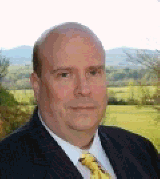|
|
Lee Feldman has served as a scientific consultant to private and public agencies, the World Health Organization, not-for-profit organizations, large multinational corporations and private equity firms for 30+ years. Lee has been on the Board of NPF since 1992.
In addition to his role at NPF, Lee is also Chief Scientific Officer of Scian – The Institute for Scientific Policy Analysis. Scian is a not-for-profit education and research project that is building upon the policy analysis work Lee began in 1977 following his post doctorate studies in immunochemistry and physics. This work resulted in Feldman’s development of the Scian Methodology, a process and tool that helps decision-makers apply quantitative fact finding methods to integrate the scientific, technical, and ethical aspects of policymaking. A particular emphasis of Lee’s work is on methods for quantifying uncertainty to increase appreciation of risks that derive from the unexpected and unknown. Scian and NPF have been frequent collaborators, working with both grass-roots organizations and public/private policymakers as they wrestle with the stakes, facts and values influencing their decision-making. By promoting a high integrity process that includes key stakeholders, Scian and NPF support the goal of rational decision-making, especially where there are significant public interest implications.
Lee’s work has been applied to many different fields and subjects, including business development, community building and problem solving, food and nutrition, as well as a wide variety of health policy matters. He has undertaken projects for organizations such as the World Health Organization, European Parliament, Sanofi-Aventis, Santech Institute, the Government of Namibia, Siemens, Medtronic, the Government of Canada, the Provinces of Alberta and Nova Scotia, numerous health enterprises, Internet companies and several investment banks and venture capitalists.
As a member of international observer teams for a number of emerging-nation elections, Lee developed models and techniques used to identify election fraud and abuse – a critical aspect of international certification of elections. Lee continues his research activities related to the application of pattern recognition, multi-objective evolutionary optimization and game-theory algorithms to the policymaking process. He is also developing methods to optimize patient adherence and health improvement approaches as a core strategy for healthcare reform. He has specific domain expertise in healthcare IT systems, pharmaceutical and biological technologies, emerging infectious disease policy, food and nutrition, information services, communications technology, banking and finance, and international development.
